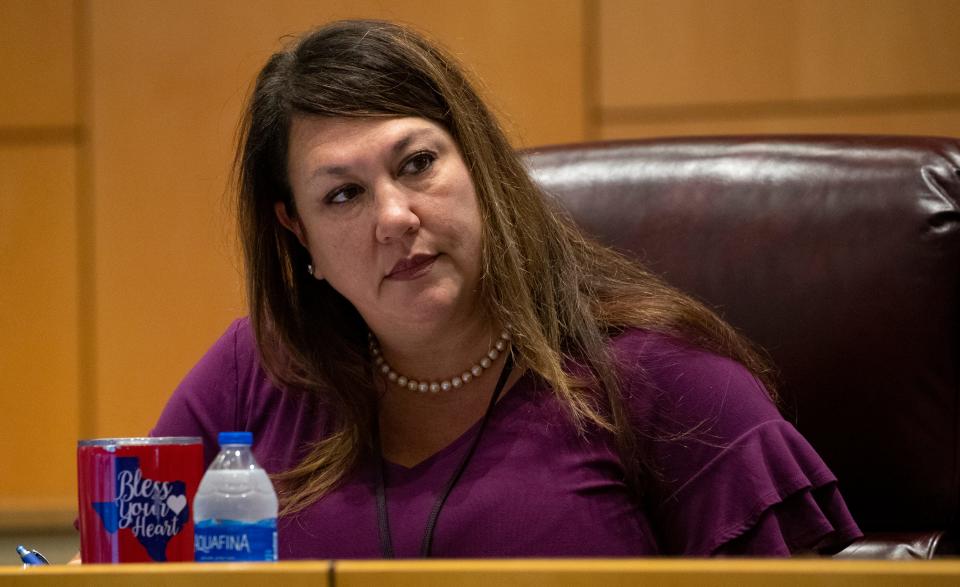Cape Coral business property tax exemption on the 2022 ballot
Cape Coral city council unanimously has voted to put a referendum on the November general election ballot to create a property tax exemption for certain businesses, though some residents have concerns.
Qualified businesses include manufacturing, light industry, technology, and corporate offices to help grow enterprise in the city.
"We'll do the best that we can under the new (2021) state statutes as far as letting people know about this particular tool," said Connie Barron, Cape Coral assistant city manager.
City Manager Roberto Hernandez introduced this initiative earlier this year, calling it a another "tool" for the city, and the city council voted April 20 to put it on the ballot.
Development for Seven Islands: Seven Islands moving forward with Forest Development Acquisition LLC
Cape annual tax on vacation rentals: Cape Coral to charge annual tax on vacation rentals to track code compliance
Commercial development in Burnt Store: Burnt Store is getting needed commercial development, albeit slowly
Ed Schultz, a 20-year resident of the city, said he had reservations about the idea.
"I think I wouldn't support that," Schultz said. "We've got too much to offer to have to subsidize businesses to come to Cape Coral."
He said between the city's growing population and city services, the environment for business is already great.
"The Cape is already known to be a great place to to buy a home, it's one of the largest cities in the state, so I think there's a lot of things here to draw smart businesses," Schultz said.
Another resident, Jim Jeskie, said it's needed to help bring businesses to the Cape.
He said the city has enough people, but not enough businesses, especially light industry, so citizens are not traveling across the Cape Coral Bridge to places like Fort Myers for work.
Jeskie said if the money is used property, then he has no issue with the proposal.
The city can only hold a referendum like this once every 12-month period.
Barron said the exemption is not structured in a way to attract large businesses, which is why the city added many caveats to receiving the incentive.
"Cape Coral doesn't have a lot of industrial area to develop it, but we do have some pockets of property and land that's out there that can be used for some of the developments that this economic development incentive would help," Barron said.
The plan up for voter approval would allow up to $2 million each year in property tax exemptions, and the exemption would sunset after 10 years.
"There are certain guidelines and there are restrictions in there, so that it's not an unlimited amount of money," Barron said.

Donna Germain, president and CEO at the Chamber of Commerce of Cape Coral, said the Chamber's government affairs committee is currently reviewing it, so the organization does not have an official position on the referendum yet.
Councilwoman Jennifer Nelson, who voted to put the exemption on the ballot, said she hopes residents will support it.
Cape Coral's overall tax base is 90% residential, and she said she sees this as a necessary way for the city to increase the city's commercial tax base.
For subscribers: Waste Pro claims Cape Coral is in breach of contract, seeks jury trial
Recent Cape news: Cape Coral water restrictions tighten amid deepening water shortage
Controversial shutter ordinance dead: Cape Coral Council turns down potential storm shutter ordinance
"Anything we can do as a municipality to incentivize businesses to come here and to open their doors here in Cape Coral is a win," Nelson said.
Nelson said the tax exemption incentive is a chance for the city to strengthen its workforce with more diverse businesses and skills.
She only has one concern, and that's the city's local workforce.
"My only concern is whoever we're bringing here that we're able to fill those jobs locally instead of having to recruit from outside to come here," Nelson said.
"I wish that we could focus on building up our next generation of workforce leaders so that they're ready to step into these industries when they finally come to Cape Coral," she added.
Eligible businesses would file a written application, and the city manager would decide whether to approve the business for the exemption. The applicant would have to be notified within 10 days.
After the city manager approves, the property appraiser would determine the total property tax revenue available to the city and estimate the amount of revenue the city would lose if the individual applicant is approved. The city council would have the final say.
Business that could receive the exemption would fall into three tiers mostly related to the average wage the business would offer, Barron said.
The three tiers for business to receive an exemption are as follows:
Tier one is for businesses paying 100% of average private sector wage, requires 10 or more manufacturing jobs or $10 million capital investment, and the exemption would last five years.
Tier two is for businesses paying 115% of average private sector wage, requires 25 or more in manufacturing jobs or $20 million capital investment, and the exemption would last seven years
Tier three is for businesses paying 125% of average private sector wage, requires 75 or more manufacturing jobs, and the exemption would last 10 years.
The maximum exemption would be 50%. New businesses and existing businesses could qualify for the exemption.
This article originally appeared on Fort Myers News-Press: Cape Coral 2022 ballot will include business tax exemption

